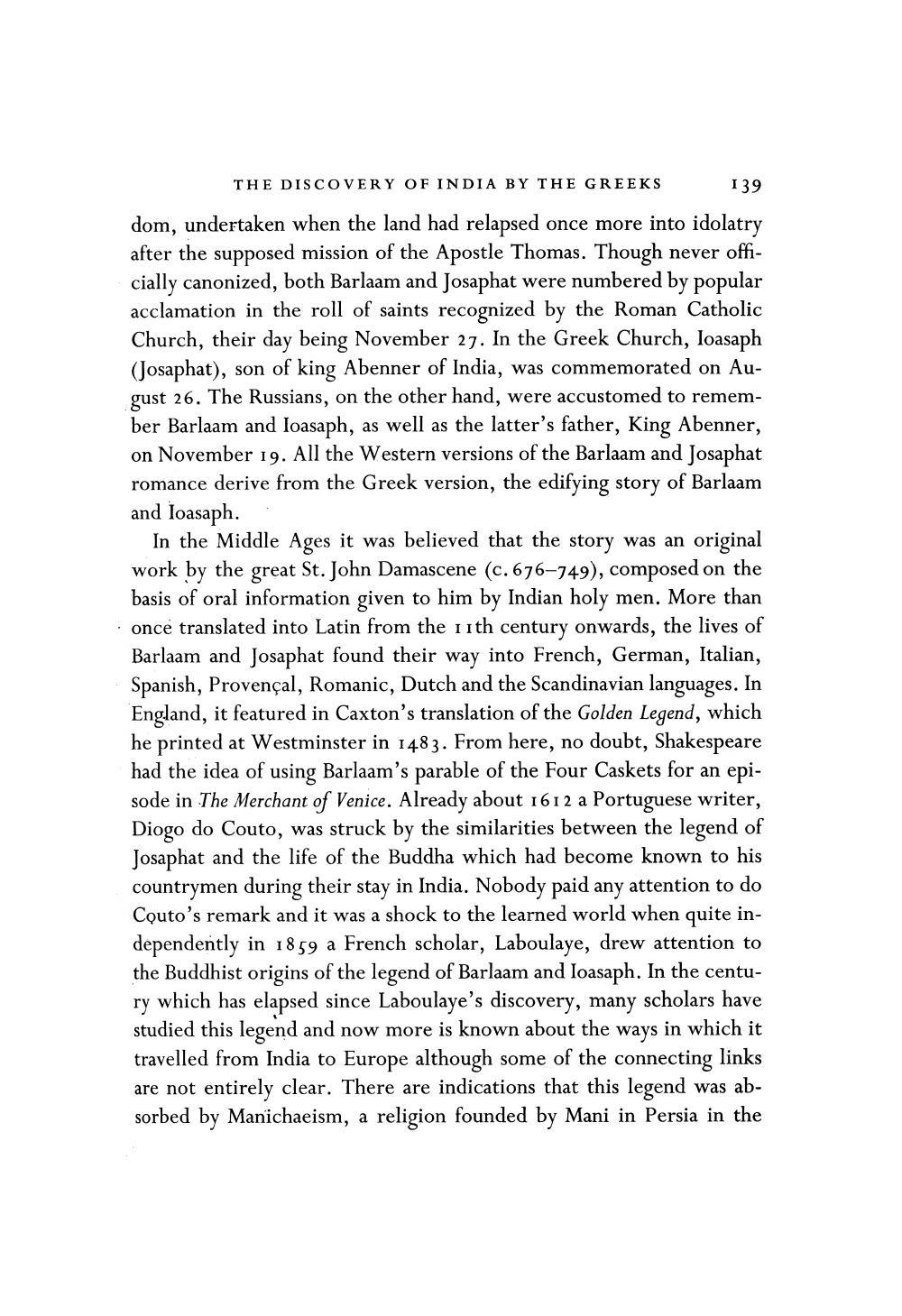________________
THE DISCOVERY OF INDIA BY THE GREEKS
139
dom, undertaken when the land had relapsed once more into idolatry after the supposed mission of the Apostle Thomas. Though never officially canonized, both Barlaam and Josaphat were numbered by popular acclamation in the roll of saints recognized by the Roman Catholic Church, their day being November 27. In the Greek Church, loasaph (Josaphat), son of king Abenner of India, was commemorated on August 26. The Russians, on the other hand, were accustomed to remember Barlaam and Ioasaph, as well as the latter's father, King Abenner, on November 19. All the Western versions of the Barlaam and Josaphat romance derive from the Greek version, the edifying story of Barlaam and Ioasaph.
In the Middle Ages it was believed that the story was an original work by the great St. John Damascene (c.676–749), composed on the basis of oral information given to him by Indian holy men. More than · once translated into Latin from the unth century onwards, the lives of
Barlaam and Josaphat found their way into French, German, Italian, Spanish, Provençal, Romanic, Dutch and the Scandinavian languages. In England, it featured in Caxton's translation of the Golden Legend, which he printed at Westminster in 1483. From here, no doubt, Shakespeare had the idea of using Barlaam’s parable of the Four Caskets for an episode in The Merchant of Venice. Already about 1612 a Portuguese writer, Diogo do Couto, was struck by the similarities between the legend of Josaphat and the life of the Buddha which had become known to his countrymen during their stay in India. Nobody paid any attention to do Couto's remark and it was a shock to the learned world when quite independently in 1859 a French scholar, Laboulaye, drew attention to the Buddhist origins of the legend of Barlaam and Ioasaph. In the century which has elapsed since Laboulaye's discovery, many scholars have studied this legend and now more is known about the ways in which it travelled from India to Europe although some of the connecting links are not entirely clear. There are indications that this legend was absorbed by Manichaeism, a religion founded by Mani in Persia in the




